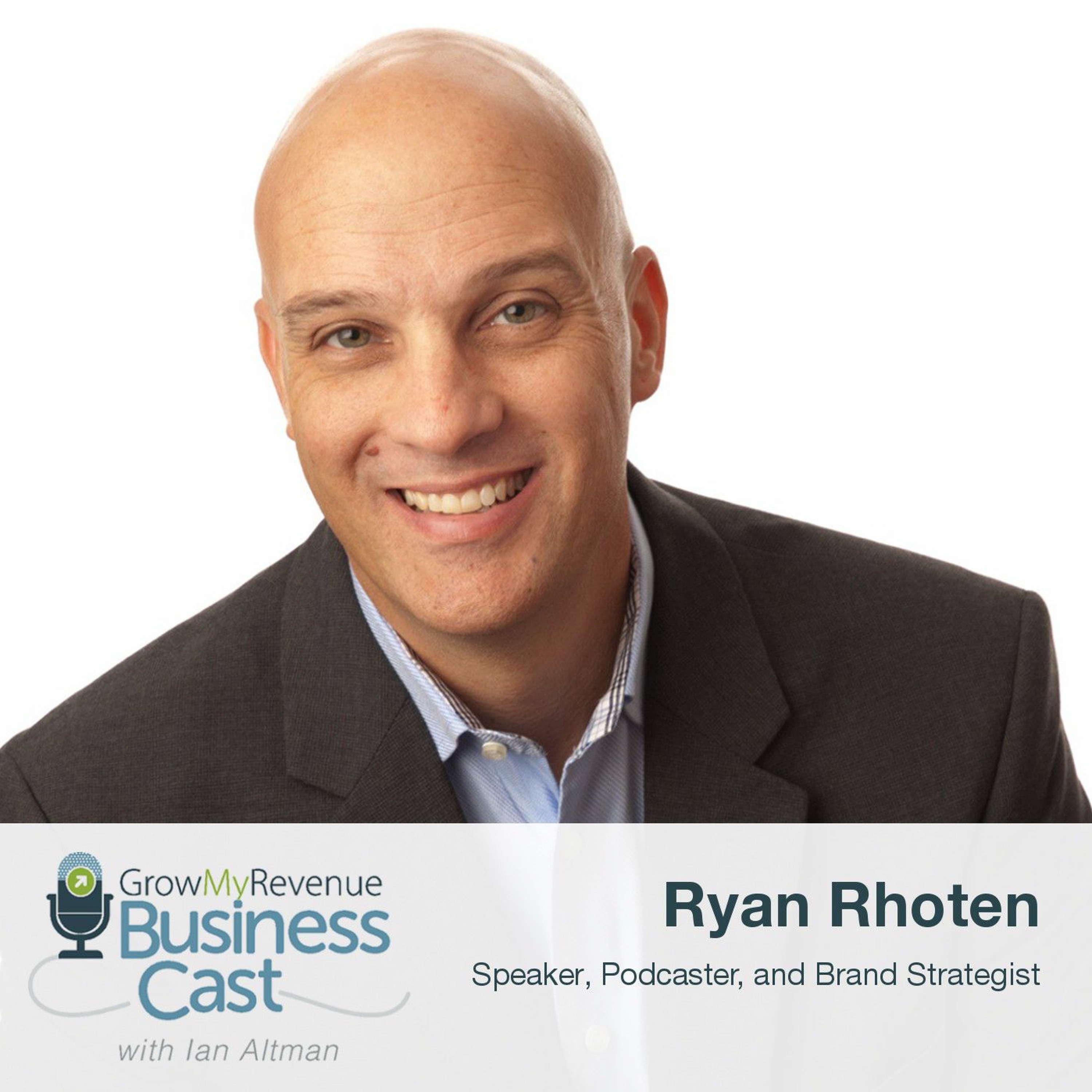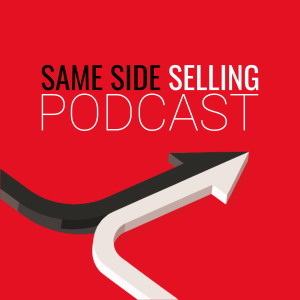
If you work within a corporation or any other organization, do you still have a personal brand? Our guest for today's episode says yes, you do. Ryan Rhoten is a speaker, podcaster, and personal brand master. He works with business professionals on creating their personal brand strategies and then elevating them.
On today's show, he joins us to explain his four-step process to personal branding, why it's relevant to everyone (even if you work for someone else), and the biggest mistakes he sees people making regarding personal branding. Ryan brings the goods on these topics and more on this instructive and highly relevant episode of Grow My Revenue.
Listen to this episode and discover:
· Why does your personal brand matter, even if you work for someone else?
· What is the single biggest mistake people make when establishing a personal brand?
· Can we control our personal brand?
· Why people may not like your personal brand, and why that's okay.
· What is the right way to utilize social media to grow your personal brand?
· And so much more!
Episode Overview
When I asked Ryan the biggest mistake he sees people making about personal branding, he said it's people not realizing they have a brand even if they work within a company. His work largely consists of helping people understand they do have a brand, and that it's compromised of two pieces.The first piece is who you are. This includes things like your core strengths, what you like and gravitate towards, and the persona you give off when you walk down a hallway.
The second piece of personal branding is you being intentional about who you are, and how you add value to the world. People need to realize they have a brand and that others see that brand. All of us should realize our brands build trust and rapport with others; if others like our particular brand, then they will want to do business with us and the companies we work for.
To create our personal brands, Ryan outlines his four-step process. He calls it DICE, which stands for: Define or Discover, Integrate, Create (Content), and Engage.
In the "Define" or "Discover" stage, you learn to know and understand yourself better. You get clear on the type of work you like to do, and don't like to do, etc. Knowing yourself, having self-awareness, and asking for feedback from trusted advisors helps in this initial stage. You must understand how you are perceived in business and outside of it before moving to the other three stages of DICE.
Next up is the "Integrate" stage. This is where you develop an intentional strategy to put yourself out there online. You make sure you can be found in online searches and that those search results will give the persona you want, and people will see what you are known for.
The third step is to "Create" content. This can be anything, from audio to video, to blogs and online publications. Where you start depends on your comfort level, but the key here is that you are starting to put your thought process online. To establish your personal brand, you want to be known for something and you must establish your presence online for that to happen.
Last, but definitely not least, is "Engage." This is where you start to build trust. You interact with people who have liked your content, and starting to follow you. This is what Seth Godin called your "tribe." You can engage with your audience in a number of ways: from phone calls, to liking their social media, commenting on their content, speaking at events, and emailing your list.
Ryan also explains what we have control over regarding our personal brand (and what we don't), and he gives a personal example to illustrate what your personal brand is. We wrap up this episode of Grow My Revenue with Ryan sharing his personal mistakes and his most crucial advice – neither of which you'll want to miss!
For full show notes and other resources, please visit: http://www.ianaltman.com/podcast/ryan-rhoten/
view more
More Episodes
Tamsen Webster Say What They Can't Unhear
 2024-10-09
2024-10-09
 2024-10-09
2024-10-09
Biggest Mistakes in Sales Presentations
 2024-09-06
2024-09-06
 2024-09-06
2024-09-06
How to Change Behavior in Salespeople
 2024-08-09
2024-08-09
 2024-08-09
2024-08-09
Modern Strategies for Trade Show Results
 2024-06-21
2024-06-21
 2024-06-21
2024-06-21
Urgency Based on a Business Case
 2024-05-16
2024-05-16
 2024-05-16
2024-05-16
The correct way to follow up after a break
 2024-01-24
2024-01-24
 2024-01-24
2024-01-24
What Yellowstone Teaches Us About Selling
 2023-09-27
2023-09-27
 2023-09-27
2023-09-27
3 Biggest Fails In Sales Kickoff Meetings
 2023-09-13
2023-09-13
 2023-09-13
2023-09-13
How To Overcome Rejection In Sales
 2023-09-06
2023-09-06
 2023-09-06
2023-09-06
3 Unexpected Beliefs in B2B Sales
 2023-08-23
2023-08-23
 2023-08-23
2023-08-23
How This Team Built A Culture Of Growth
 2023-08-16
2023-08-16
 2023-08-16
2023-08-16
012345678910111213141516171819
Create your
podcast in
minutes
- Full-featured podcast site
- Unlimited storage and bandwidth
- Comprehensive podcast stats
- Distribute to Apple Podcasts, Spotify, and more
- Make money with your podcast
It is Free
- Privacy Policy
- Cookie Policy
- Terms of Use
- Consent Preferences
- Copyright © 2015-2024 Podbean.com






